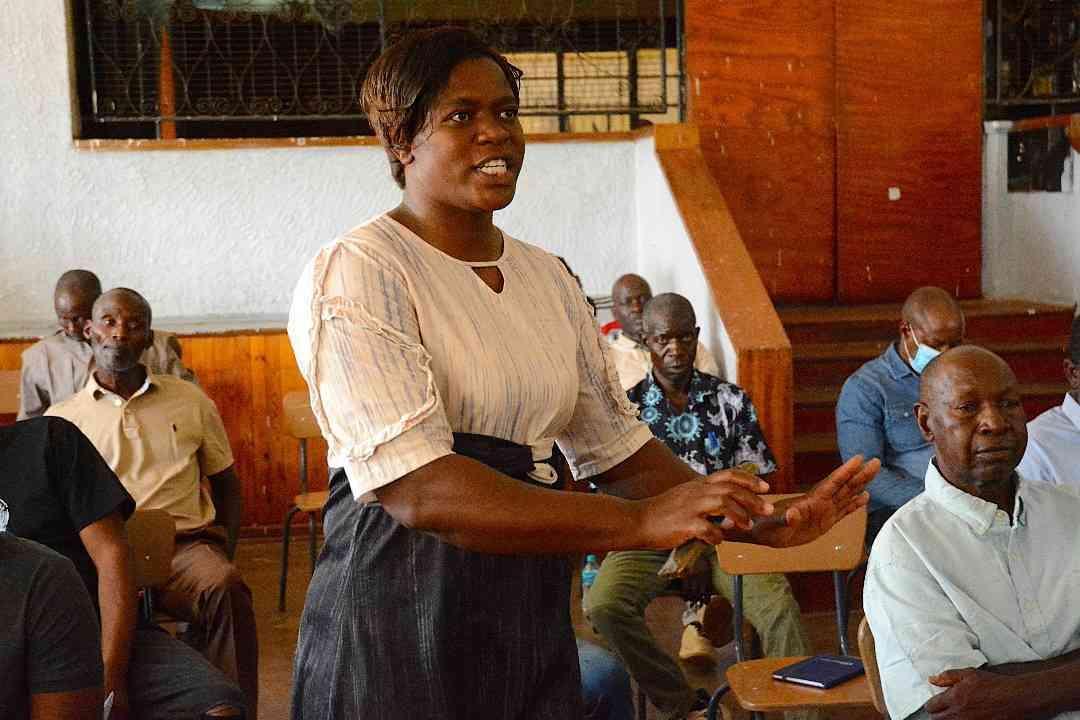Africa-Press – Zimbabwe. A social scientist has urged Parliament to broaden its definition of vulnerable populations in the proposed Climate Change Management Bill, warning that pregnant and postpartum women and their infants are increasingly at risk due to rising temperatures.
The Joint Portfolio Committee on Environment, Climate and Wildlife and the Thematic Committee on Climate Change with funding from Sweden through the Sexual Reproductive Health Rights, HIV and AIDS Governance Project of the SADC Parliamentary Forum is gathering public input on the Bill as part of nationwide hearings to ensure inclusivity in the law-making process.
Speaking during a public hearing on the Bill at Shamva Country Club last week, Mr Samson Chikura, a technical lead on Cool Roof Technology implementation at High Horizons, said climate change was creating new categories of vulnerability that were not reflected in the current draft of the Bill.
“The current understanding may overlook the significant paradigm shift in how we identify those who are vulnerable. Rising temperatures pose serious risks, particularly to pregnant women, especially during their second and third trimesters, postpartum women, and their infants,” he noted.
Mr Chikura warned that heat stress and high indoor temperatures could trigger cardiovascular strain among women during and after pregnancy, threatening maternal and child health outcomes.
He said it was essential for the Bill to explicitly include these groups under vulnerable populations, in line with Zimbabwe’s constitutional commitment to social justice.
“Their needs must be recognised and addressed within a constitutional and legislative framework. Inclusion is not only a matter of social justice but a necessary step in fostering resilience,” Mr Chikura submitted.
To protect climate-affected mothers and children, he proposed several interventions that should be incorporated into the law. On health monitoring and support, he called for establishment of climate-related maternal health surveillance programmes to detect heat stress impacts early.He urged education of families on heat risks, hydration, and low-cost cooling methods; infrastructure improvements through creation of public cooling centres and promote heat-mitigation housing designs; ensuring maternal health considerations are reflected across local and national adaptation strategies; and ensuring that indigenous knowledge guides solutions. He also emphasised the role of local innovation and tradition in climate response.
He argued that adaptive strategies must not rely solely on scientific technology but should be combined with Indigenous Knowledge Systems (IKS). He explained that many climate stressors affecting rural communities were “more local than the perceived ozone depleting substances” and required tailored community-led responses.
“Mitigation and adaptation must tap into Indigenous Knowledge Systems,” he said and urged lawmakers to design a Bill that safeguards those most at risk.
“By integrating these considerations, we can create a more comprehensive approach that not only addresses climate impacts but also prioritises the health and well-being of our most vulnerable populations,” he said.
r Chikura also urged lawmakers to strengthen provisions on climate financing in the proposed Bill, warning that without safeguards, the National Climate Fund risked failing the vulnerable communities it is meant to support.
He welcomed the creation of the fund under Clause 27 but said it must be backed by strong governance and equity principles to be effective.
“The establishment of the National Climate Fund is a commendable initiative, but we need a robust framework that ensures funds reach vulnerable populations fairly and transparently,” he said.
He proposed enhancements to Clause 27. They include introducing a Fiscal Equalisation Framework to prioritise poor and climate-vulnerable communities using clear criteria based on geography, poverty levels and exposure to droughts, floods or extreme heat.
He advocated for the creation of “Intergovernmental Transfer Systems” to ensure resources from the National Climate Fund flow efficiently from central government to local authorities and communities.
“The bill must outline how funds move from Treasury to villages,” Chikura stressed. “Climate impacts are local, so solutions must be locally financed.”
He called for guaranteeing stakeholder participation, including communities, civil society and traditional leaders, in decisions on climate adaptation funding.
The inclusion of Monitoring and Evaluation Measures to track the impact of investments and prevent misuse of public funds was stressed, as was investing in capacity building so local authorities and communities can plan, manage and account for climate projects.
He said these reforms would build trust and ensure climate finance addresses real community needs such as drought relief, irrigation, heat-proofing schools, and disaster preparedness.
“Climate finance must not get stuck in Harare. It must build resilience where climate shocks are felt the most,” he submitted.
Public hearings on the bill continue across Zimbabwe as Parliament gathers input to shape Zimbabwe’s first comprehensive climate law.
For More News And Analysis About Zimbabwe Follow Africa-Press






